Hydrogen Value Chain
Hydrogen is a key energy carrier in the envisaged Hydrogen Future. Future energy systems will find hydrogen to be a beneficial component due to its many advantages. It is a flexible, clean energy source.
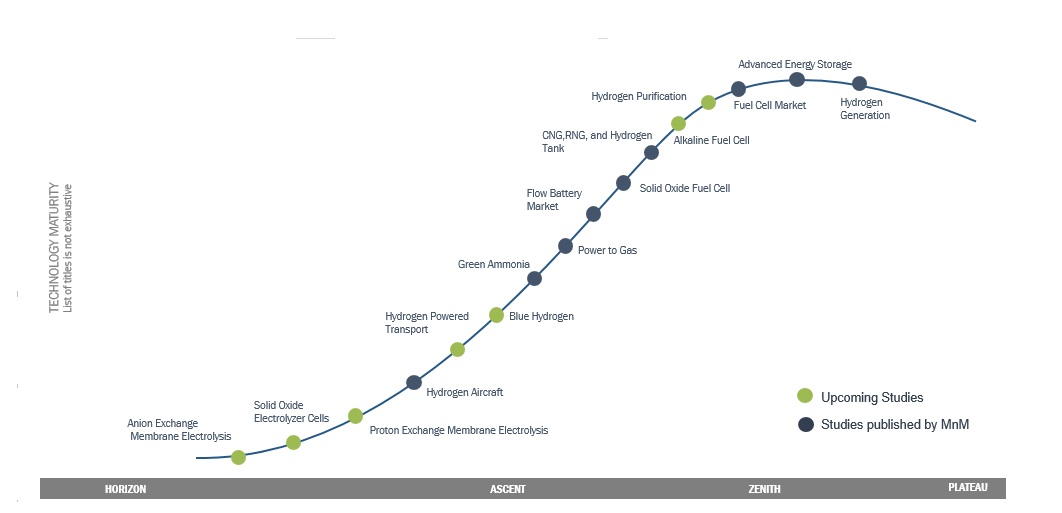
Hydrogen is a key energy carrier in the envisaged Hydrogen Future. Future energy systems will find hydrogen to be a beneficial component due to its many advantages. It is a flexible, clean energy source.
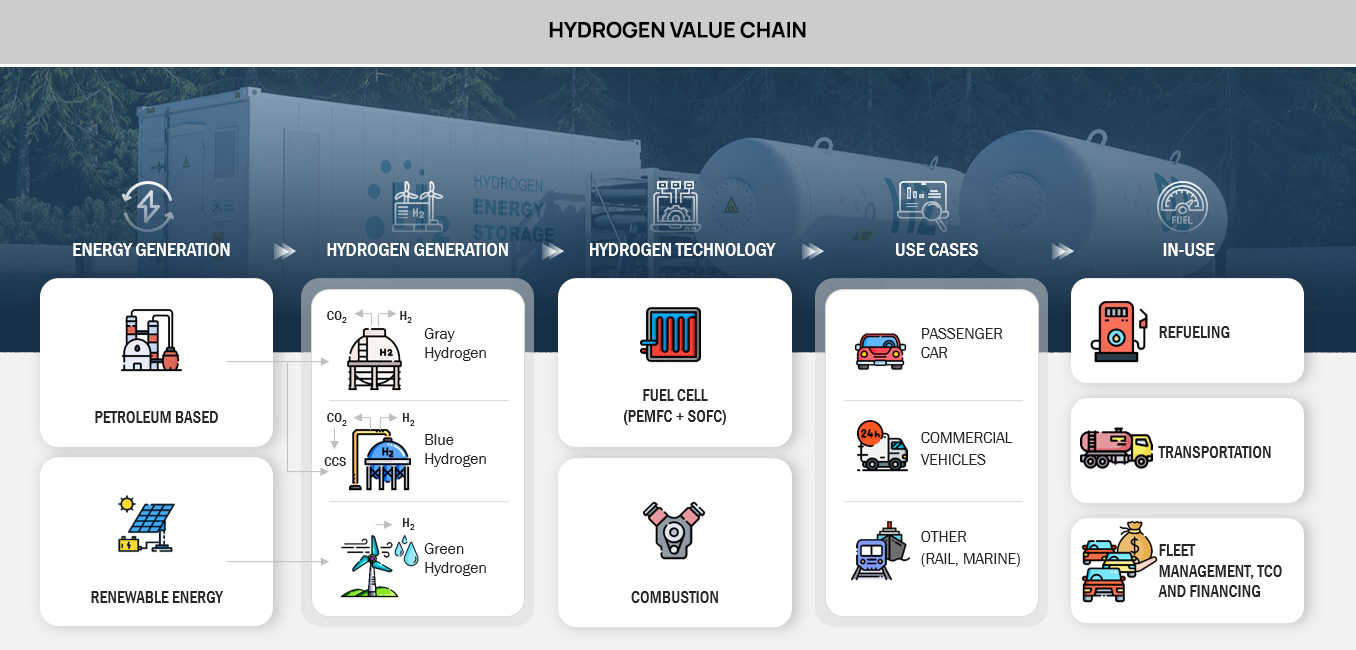
Hydrogen is a versatile and clean energy carrier that can be used in various applications. Here are some of the most commonly used hydrogen technologies & comparison of their advantages and disadvantages:

The envisioned Hydrogen Future depends heavily on hydrogen as an energy carrier. Hydrogen presents various benefits that make it a valuable element of the energy landscape of the future. It is a clean, adaptable energy source.
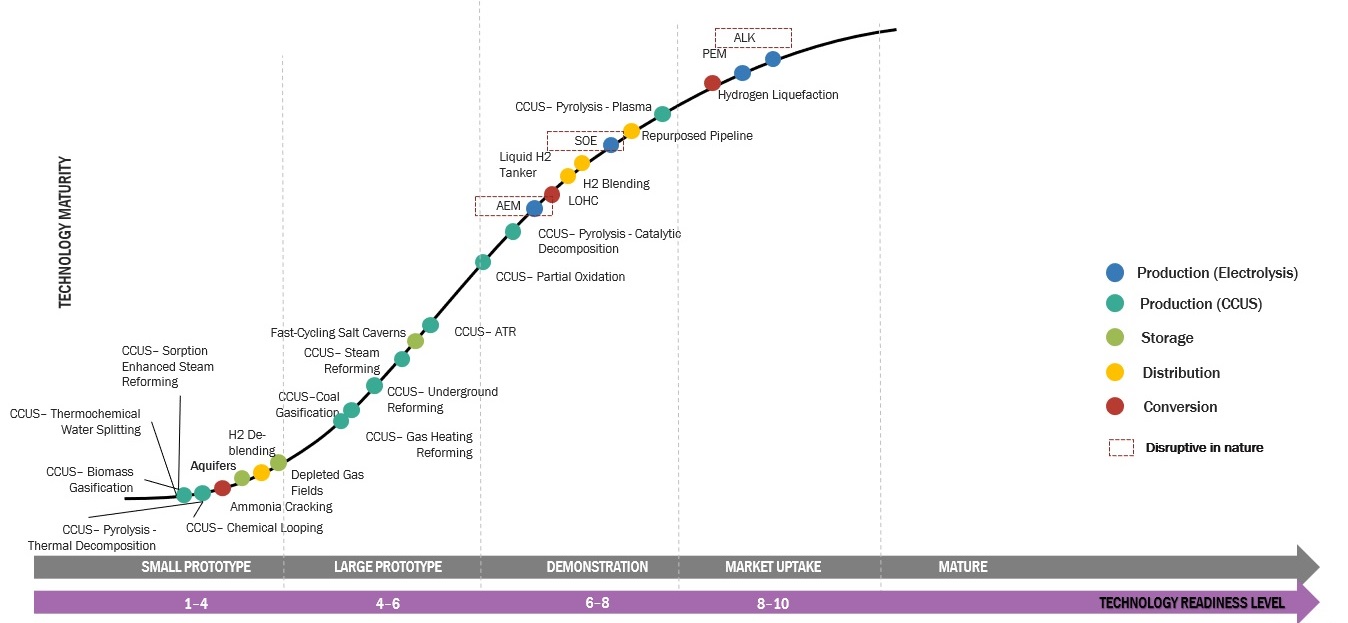
One element of the hydrogen economy that is essential is , Hydrogen Storage. Hydrogen must be kept in a solid state, under high pressure, or at low temperatures due to its low density and great flammability.

The Hydrogen Paradigm is a forward-thinking energy plan that emphasizes using hydrogen as a clean, sustainable energy source. Recent years have seen a considerable increase in interest in hydrogen because of its potential to solve a number of environmental and energy-related issues.
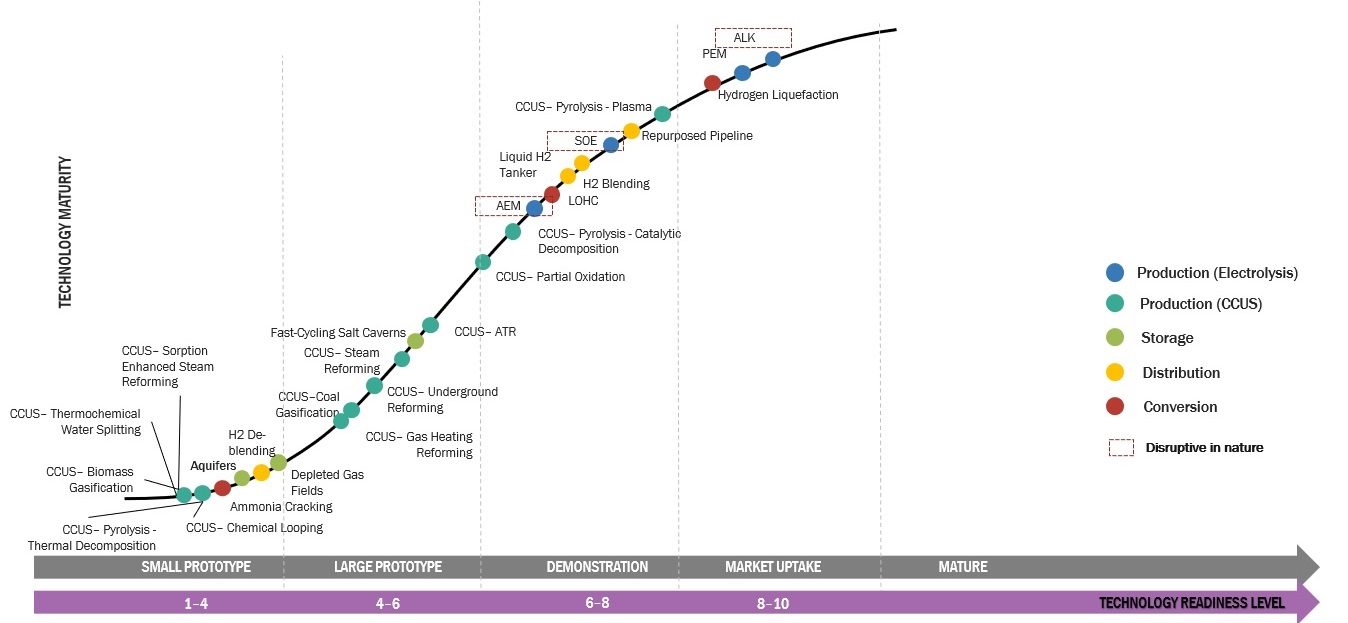
Green hydrogen is a form of hydrogen gas that is created by the electrolysis process utilizing renewable energy sources like sun, wind, or hydropower. Using electricity, this process divides water (H2O) into its component parts, hydrogen (H2) and oxygen (O2). Green hydrogen is created without emitting carbon dioxide, in contrast to gray or blue hydrogen, which is produced from fossil fuels or natural gas.

Green hydrogen is hydrogen produced using renewable energy sources, such as wind or solar power, through a process called electrolysis. It has gained significant attention as a clean and sustainable energy carrier with numerous opportunities across various sectors.
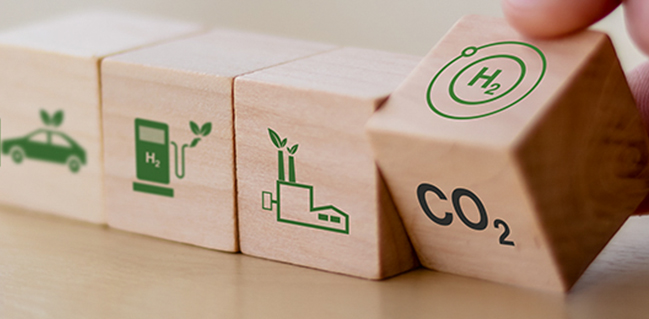
Both hydrogen and electricity have significant roles to play in the future of energy and transportation, depending on the particular application and context. However, this is a complicated and dynamic subject.

Hydrogen is an element that may be used in many different industries due to its versatility. These practical applications of hydrogen show off its adaptability and capacity to deal with a range of energy and environmental issues, particularly when it comes to lowering greenhouse gas emissions and advancing clean energy alternatives.

With potential applications in a wide range of industries, hydrogen has attracted a lot of attention as a flexible and clean energy source. Thanks to its clean energy qualities and adaptability, hydrogen has the potential to be extremely important in a number of industries.